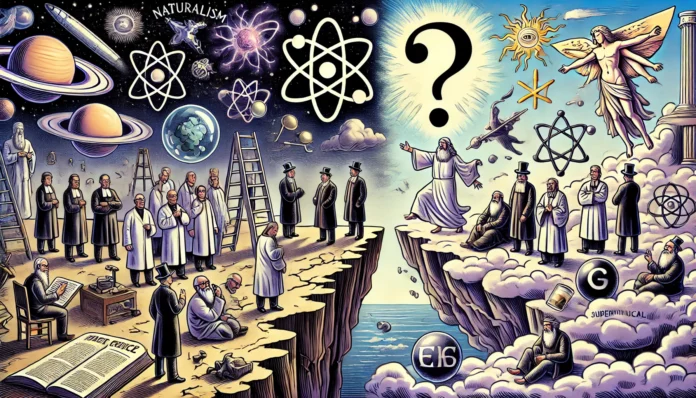Understanding Naturalism: The Foundation of the Atheist Worldview
In the ongoing discourse about the nature of reality, two major perspectives often come into conflict: naturalism and supernaturalism. For atheists, naturalism forms the bedrock of their worldview, shaping how they interpret the universe and their place within it. This article explores what naturalism means, how it contrasts with supernatural belief systems, and why atheists rely on science and empirical evidence to understand reality.
What Is Naturalism?
Naturalism is the philosophical viewpoint that everything arises from natural properties and causes, and that supernatural or spiritual explanations are neither necessary nor supported by evidence. According to the Stanford Encyclopedia of Philosophy, naturalism asserts that the natural world is all there is, and that scientific inquiry is the best method for understanding it. This approach rejects the idea that there are realms or entities beyond the observable universe that influence or govern natural phenomena.
There are two main forms of naturalism:
- Metaphysical Naturalism: The belief that only natural laws and forces operate in the world.
- Methodological Naturalism: The practice of seeking explanations based on natural causes, especially in scientific research.
Supernaturalism: A Contrasting Perspective
Supernaturalism, in contrast, posits that there are realities or forces beyond the natural world—such as gods, spirits, or other mystical entities—that can intervene in or influence the universe. This perspective is foundational to many religious and spiritual belief systems, which often attribute unexplained phenomena to supernatural causes.
While supernatural explanations have historically filled gaps in human understanding, advances in science have increasingly provided naturalistic explanations for phenomena once considered mysterious. For example, diseases once attributed to evil spirits are now understood through the lens of microbiology and medicine.
Why Atheists Embrace Naturalism
Atheists typically reject supernaturalism because it relies on claims that cannot be tested, observed, or falsified. Instead, they embrace naturalism for several key reasons:
- Empirical Evidence: Atheists prioritize evidence that can be observed, measured, and tested. Scientific methods allow for hypotheses to be scrutinized and revised based on new data.
- Consistency and Predictability: Naturalistic explanations provide consistent and predictable results, which are essential for technological and medical advancements.
- Intellectual Honesty: Admitting the limits of current knowledge and seeking natural explanations encourages intellectual humility and ongoing inquiry.
As noted by the American Scientist, scientific naturalism has been instrumental in the progress of human knowledge, from understanding the cosmos to unraveling the complexities of life on Earth.
The Role of Science in the Atheist Worldview
Science is central to the atheist worldview because it offers a systematic way to investigate reality. Through observation, experimentation, and peer review, science builds a body of knowledge that is always open to revision and improvement. This process stands in stark contrast to dogmatic belief systems that rely on unchanging doctrines or sacred texts.
Key scientific discoveries—such as evolution by natural selection, the Big Bang theory, and the germ theory of disease—have provided naturalistic explanations for questions that were once the exclusive domain of religion. These discoveries are supported by extensive evidence and have withstood rigorous testing and scrutiny.
For example, the theory of evolution, first articulated by Charles Darwin and supported by a vast array of fossil, genetic, and observational evidence, explains the diversity of life without invoking supernatural intervention. The Nature Education platform offers a comprehensive summary of the evidence supporting evolution.
Rejecting Superstition and Pseudoscience
Atheists are often critical of superstitions and pseudoscientific claims because these rely on anecdotal evidence, cognitive biases, or appeals to tradition rather than rigorous investigation. Beliefs in astrology, homeopathy, or paranormal phenomena persist despite a lack of credible evidence. The Committee for Skeptical Inquiry is one organization dedicated to promoting scientific skepticism and debunking pseudoscientific claims.
By rejecting superstition, atheists advocate for a worldview grounded in critical thinking and skepticism. This approach not only leads to a more accurate understanding of reality but also helps protect individuals and societies from harmful or exploitative practices.
Naturalism and Meaning
One common misconception is that a naturalistic worldview leads to nihilism or a lack of meaning. In reality, many atheists find profound meaning in the natural world, human relationships, and the pursuit of knowledge. Without reliance on supernatural promises or threats, meaning is derived from personal values, achievements, and connections with others.
Philosophers such as Richard Taylor and Susan Wolf have explored how meaning can be constructed in a naturalistic framework, emphasizing the importance of engagement, creativity, and contribution to something larger than oneself.
Naturalism in the Modern World
Today, naturalism continues to shape scientific research, ethical discussions, and public policy. Issues such as climate change, public health, and technological innovation are addressed through evidence-based approaches rather than appeals to supernatural authority. Organizations like the Center for Inquiry promote secularism and science education as essential components of a rational society.
As our understanding of the universe expands, the naturalistic worldview remains a powerful framework for making sense of existence. By relying on science, reason, and empirical evidence, atheists and other naturalists continue to challenge superstition and advance human knowledge.
For those interested in exploring these ideas further, resources such as the Stanford Encyclopedia of Philosophy and the Internet Encyclopedia of Philosophy offer in-depth discussions on naturalism and its implications for philosophy, science, and society.
Ultimately, the naturalistic approach encourages curiosity, critical thinking, and a commitment to understanding the world as it truly is—qualities that continue to inspire and guide the atheist community.

